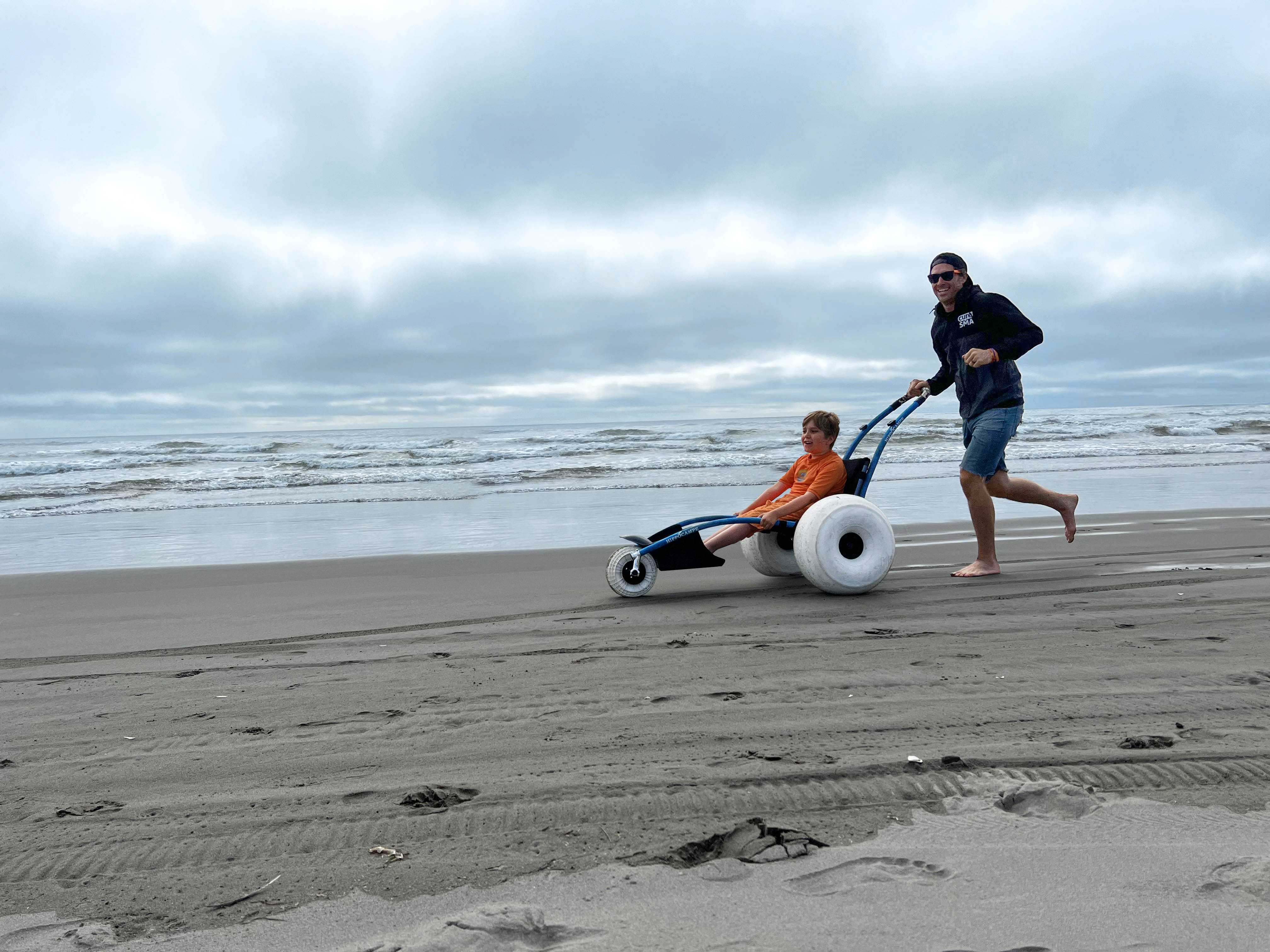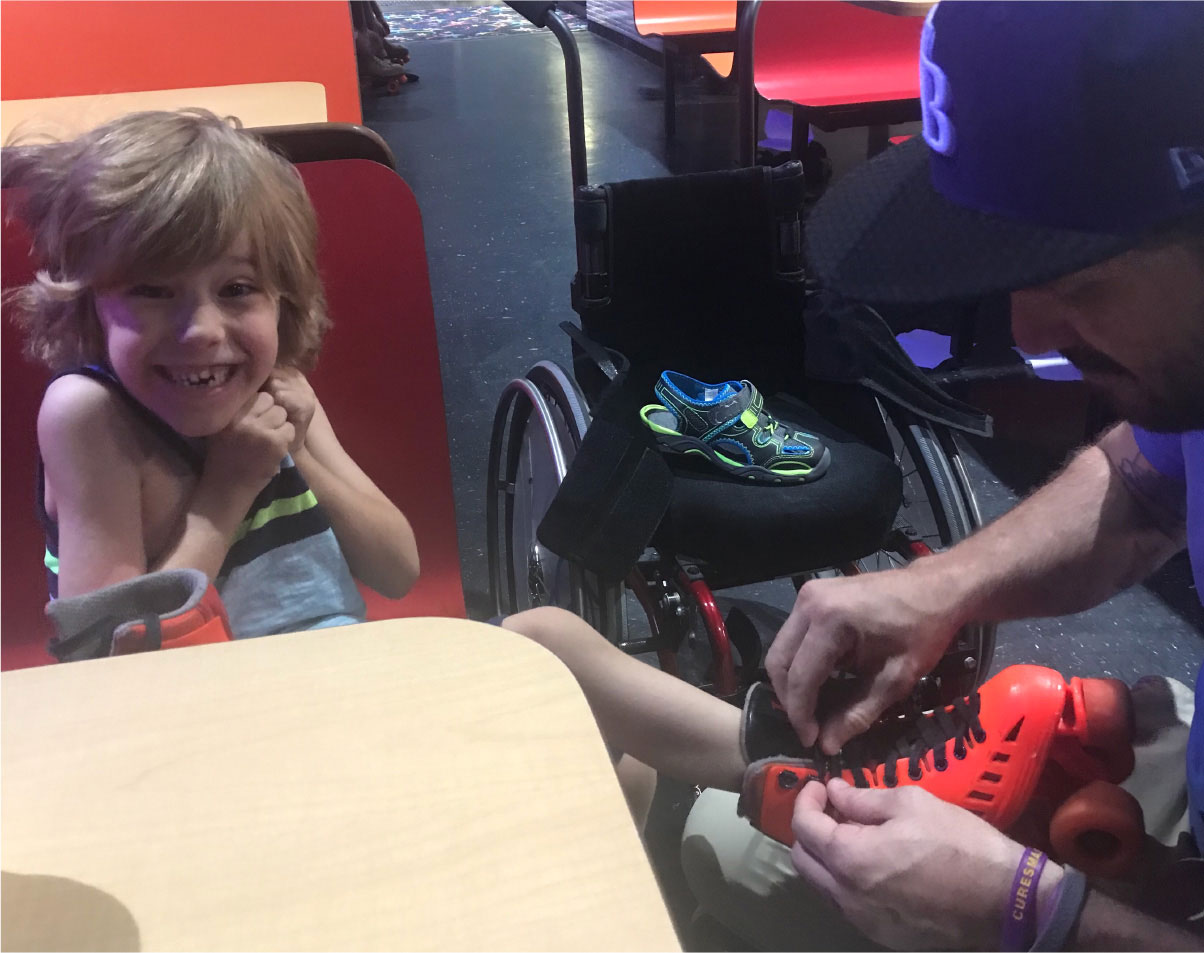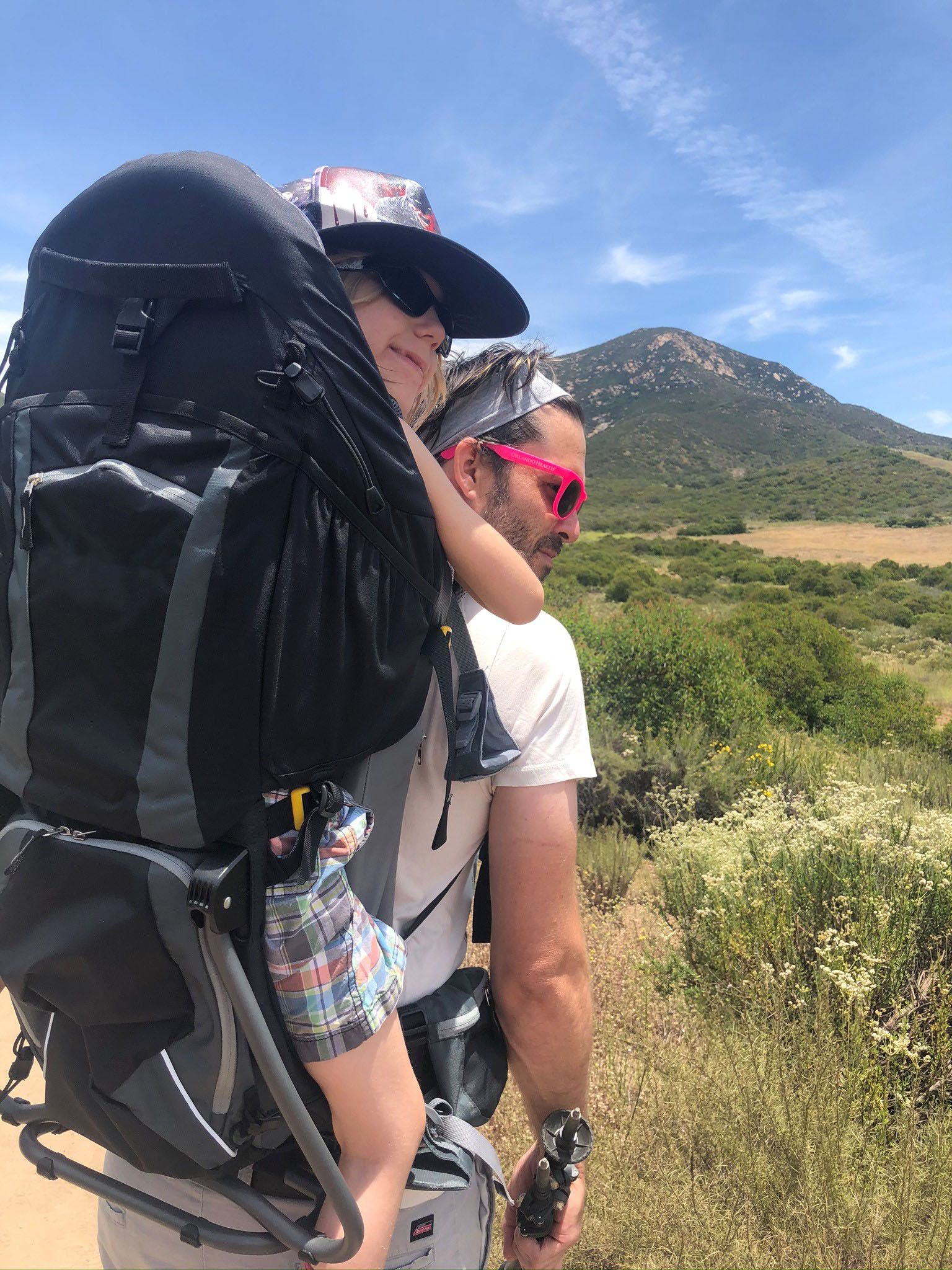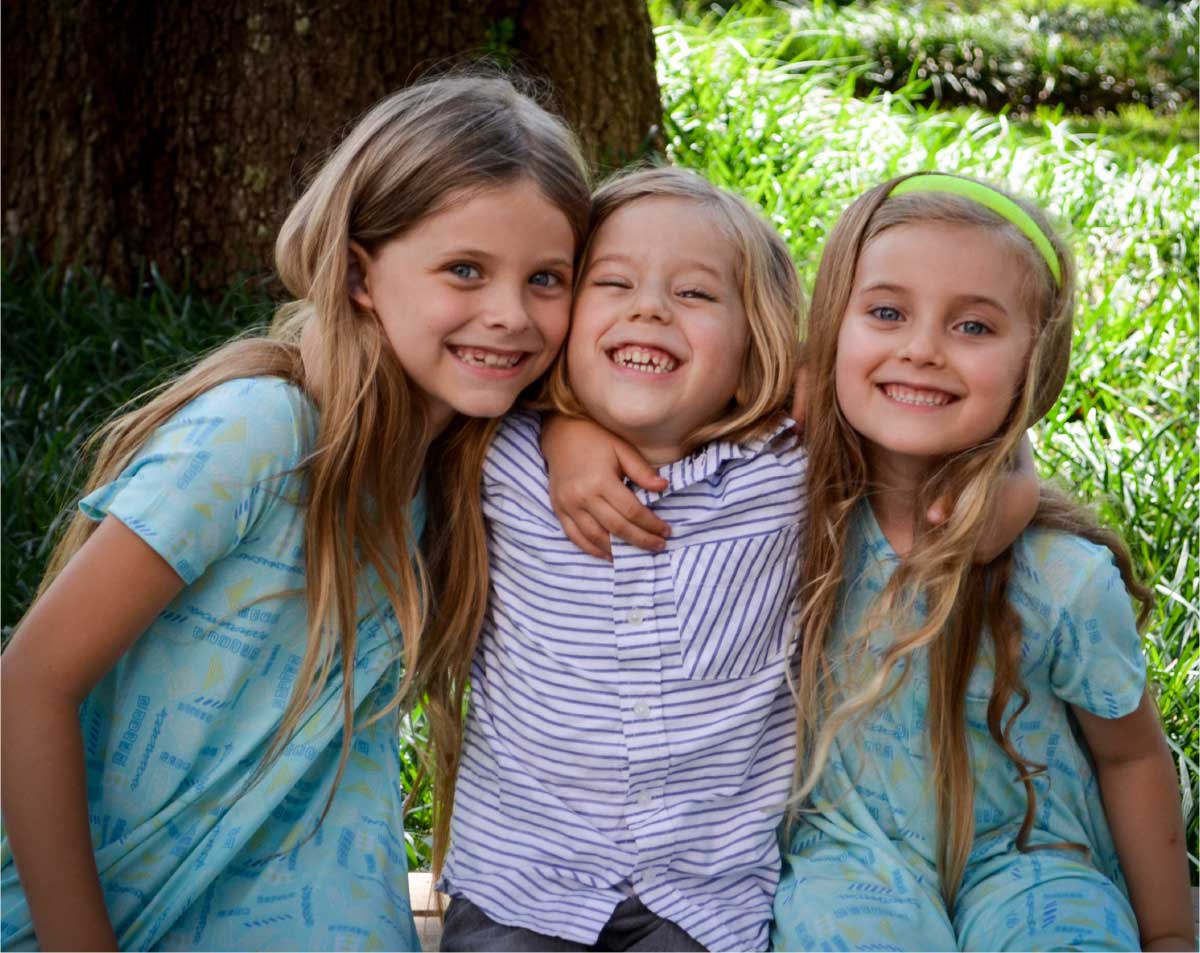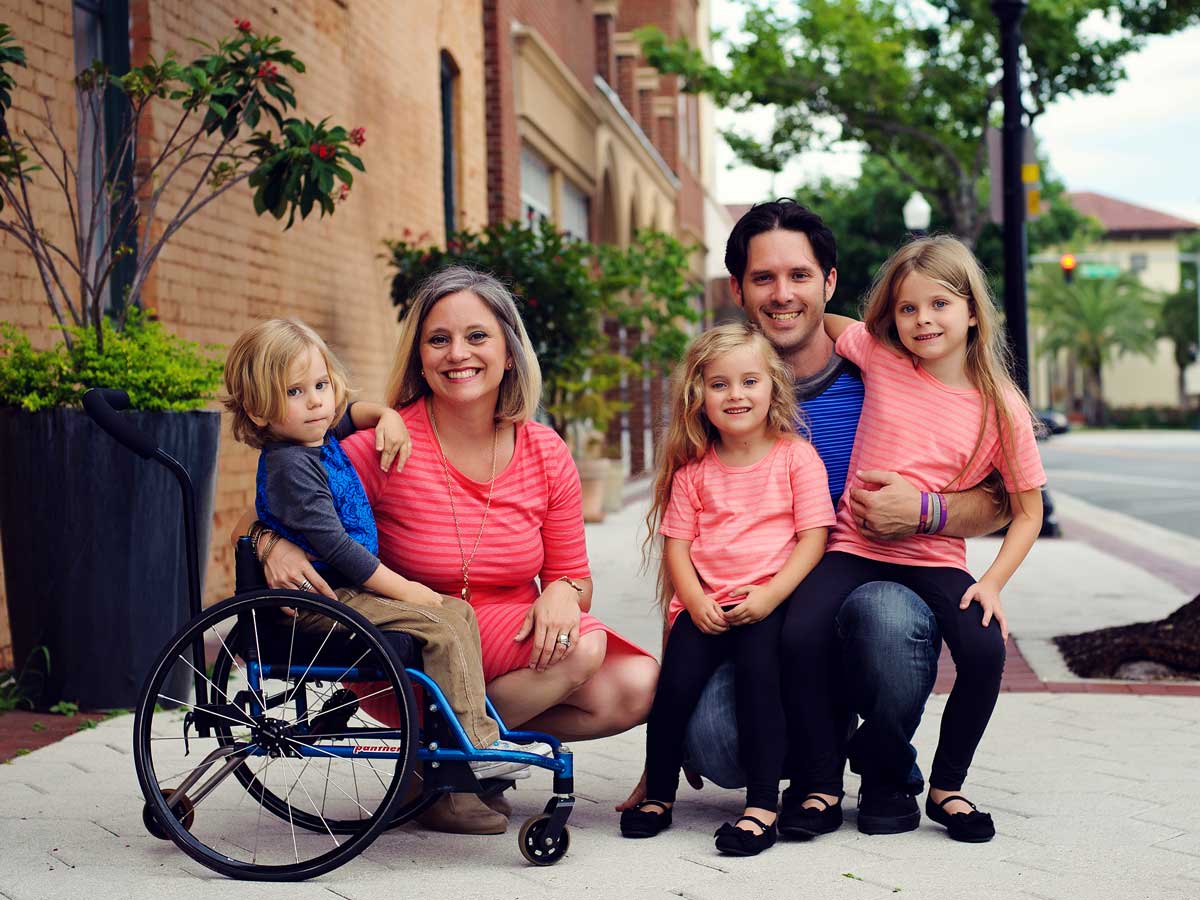It's strange. We work long hours for companies that can easily replace us. If we're lucky, we like what we do and receive a fair wage. If not, we do it anyway.
We choose joy.
Sometimes after work, we continue the work required in our family. We respond and act quickly when our child is in distress. We don't sleep when our child is in respiratory distress. Yet, we listen when others tell us how tired they are.
And we choose joy.
Life with a medically complex child often forces us to slow down. Sometimes, life slows to a complete stop. These times are difficult as we watch the world around us move on while we stand still.
But still, we choose joy.
A trip to the zoo means loading more medical equipment into our vehicle than exists in an average hospital room. Suction machines, spare batteries, trach vents, pulse oximeters, nebulizers, etc. The list goes on and on. For our family, it includes transporting two power chairs in a borrowed pickup truck (to be driven separately) with a ramp that works but is super sketchy because the chairs weigh 350 pounds each. By the way, a trip to the grocery store requires the same load. We're spectacles of society, sometimes pariahs.
“And we still choose joy.”
Time and again, I meet other fathers in our extended community, from all different backgrounds, all different professions, with all different anything - you name it. We not only share our experience of having a child living with spinal muscular atrophy (SMA), but also we share our joy. Not all of us for sure, and not all of us all of the time, but enough that I'm compelled to talk about it. Maybe some of us are faking it, but I'll receive it all the same. Our joy is what keeps us connected to our family and to each other.
Our joy inspires me.
